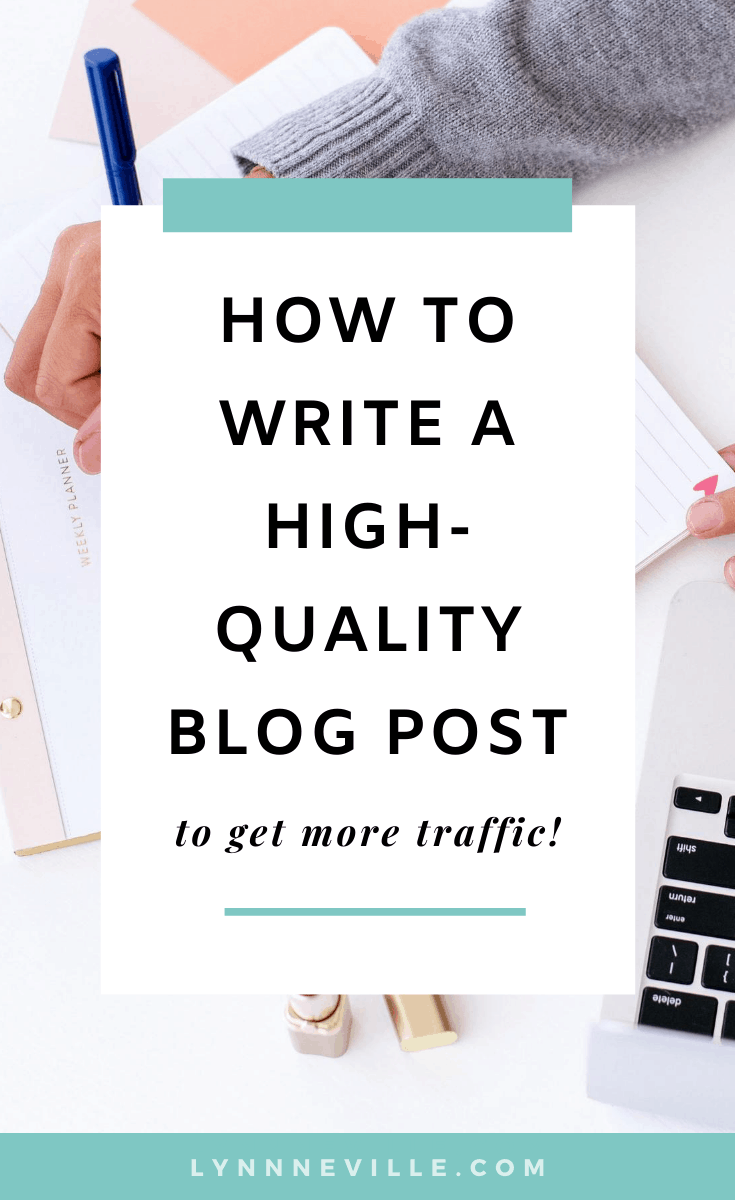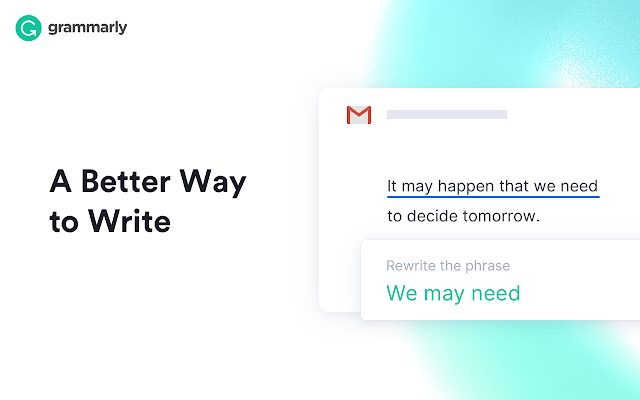Do you find yourself struggling to write a quality post? One that your audience wants to read? And ultimately, one that gets you more loyal blog followers and more traffic? First, let’s talk about what is a high-quality blog post? It’s one that:
- Answers questions your audience has about your niche
- Gives them tips and resources to support the journey you have laid out for them
- Helps them gain the transformation you offer
To help you write that kind of post, follow these 9 simple tips for a high-quality blog post.
This post may contain affiliate links. Please read our disclosure for more info.
1. Know your Audience
Before you start writing, you want to have a firm understanding of who you’re writing for. If you’re blogging for fun or as a hobby, this may not be important. But if you’re writing for your business, then you should have a dream client in mind. And you want to have a firm understanding of things like:
- How old are they?
- What are they like?
- What’s their typical day like?
- What would make their life easier?
- What frustrates them?
These are just some of the questions you want to ask to define your ideal client. Knowing exactly how to identify your ideal client allows you to better communicate with them. Your writing will be more comprehensive, address their pain points, and speak to their specific wants and needs.
Which brings me to the next point.
2. Address Their Needs As It Relates to Your Offers
If your ideal client is struggling to lose weight, we know a couple of ways to address that is by learning to eat well and move more. Great! You know their needs. Now, you offer coaching on nutrition, but exercise isn’t in your wheelhouse. So, write about things like portion control, meal planning, or the right foods to eat and foods to avoid. Don’t write about CrossFit, pilates, or HIIT training if those topics aren’t aligned with your products or services.
“Your post content should address your audience’s needs and align with your expertise and how you can help them.”
For one thing, you’ll come across an ingenuine. Secondly, if your reader reaches out to you with questions, will you be able to answer them? Third, while those topics can help them achieve the transformation they’re looking for, you may not have the know-how or offerings to support that aspect of their journey.
Think of it this way. If you’re a yoga instructor, does it make sense to write about swimming? Probably not. Your post content should address your audience’s needs and align with your expertise and how you can help them.
3. Choose Your Keywords
What’s a keyword? It’s a word that best describes the content in your blog post. Why do you want one? It’s good for SEO (search engine optimization), which is important because when people search for your keyword, you want them to find your post.
For example, if your post is about “easy low-carb recipes,” your keywords could be precisely that. If it’s about “3-ingredient healthy desserts,” then those can be your keywords.
A keyword discussion goes beyond the scope of this post, but suffice it to say, when you choose your keyword, make sure to include it or similar words more than once in your post.
Follow these essential tips to write a high-quality blog post that boosts traffic and grows loyal blog followers who want to read everything you write.Click To Tweet
4. Add Your Voice
If your content is about tips for adding more vegetables to your diet, you’ll find hundreds of other posts on that same topic. So, how do you make yours different from all the rest? By making sure you add your voice to your writing.
As you’re reading this post, you probably get a sense of how I like to write or “talk.” It’s a little more casual and conversational, but still informative. You might be even more conversational than I am or include expletives. That’s fine! You want your voice to come out to attract the right people who get you and want to work with or buy from you.

5. Share Your Story
Along the same lines, to take it further, personalize your blog post. How? By adding your story. If your post is about how to eat well when you go out to a restaurant, then include an example of a struggle you had when you went out to eat. Or talk about a situation a client had, and how you helped them solve it.
Sharing your story helps your reader relate more to you and differentiates your writing from everyone else’s.
6. Include Internal and External Links
Both internal and external links are useful for SEO and will help your post rank higher in a google search. (This means when someone searches for a topic you’re writing about, your post will show up higher in the search results.)
-
Internal Links
Internal links serve two purposes. They keep readers on your website longer, which is great SEO. It signals to google or other search engines like Pinterest that your content is worth reading.
But you don’t want to link to any old post or page on your website. Your links should go to related content that supports your post, gives the reader more info about the topic, or points them to an offer you have that helps them move to the next step. In other words, it adds more value to your reader.
“The links in a high-quality blog post should go to related content that adds more value to your reader.”
-
External Links
Like internal links, external links should take your reader to more related or supporting info on another website. The best kind of external links are ones to authority sites or posts on high-authority or reference sites (e.g., FDA, AMA, WebMD) or published studies or statistics (e.g., American Journal of Medicine). This helps your blog post rank higher because it tells Google that you’re referencing trusted websites.
7. Make Your Blog Post Easy to Read
Do you like reading really long paragraphs? Or posts that look like they go on and on forever like a book report? Most people don’t when they’re reading online. And with more and more people reading content on their phones, it’s even more important to break up your text so that it’s more appealing and less strain on the reader.
10 Tips for a More Readable Blog Post
Make it easier for your audience to read what you have to say with these simple tips.
- Write short paragraphs
- Use bullet points
- Break up text with images
- Use a dark font on a white or very light background
- Choose a font that’s easy to read. If you have to use a script or decorative font, use it sparingly and only in the titles.
- Set your font size to 12 points or higher
- Use headers and sub-headers
- Bold or italicize text you want to emphasize
- Insert relevant quotes
- Pull out key phrases and highlight them separately
8. Check and Double-Check Your Writing
I see this way too often – blog posts with spelling errors, improper grammar, and hard-to-read paragraphs. If your post has one or even two mistakes, your reader may not even notice it. But if it has several errors, it doesn’t put you in the best light, and it certainly doesn’t present a high-quality blog post.
There are easy fixes for that. Use tools like spell check, Grammarly, and HemingwayApp to check and double-check your work. The latter two can also highlight parts of your writing that are too wordy or use words that can be difficult to understand.
9. End with a Call to Action
Have you ever read a post and gotten all the way to the end and thought, okay, what next? When you leave out a call to action, your reader is left with that precise thought. So, give them what they’re looking for – a next step, or a call to action, aka CTA.
CTA Examples
Your call to action could be any of the following.
- An invitation to book a call with you to learn more about how you can help them with the content you covered in your post.
- An offer to grab a free downloadable related to the post.
- A sentence or two about you, your products and services, and how to reach you.
- A suggestion to read a related post or go to a relevant page on your website.
- A directive to leave a comment or question in the comments section.
Whichever you choose, just don’t leave them hanging.
Start Writing
If you keep these tips in mind as you write, you should be able to cover the key components of a high-quality blog post. So go ahead and start writing. Grab my free downloadable checklist you can reference each time you create a new post.
Connect with Me
Have questions? Drop them in the comments below or email me at lynn@lynnneville.com.
Did you see that? I ended with a call to action.
References:



I am bookmarking this article. You have some really invaluable info in it
Thank you! And thanks for reading.
Thank you for these tips on how to write a great post. Will make application.
Great! Thanks for checking it out.
Thanks for these tips, I find that my posts which follow this get better traffic as well.
Absolutely! You can update your other posts to meet these criteria and google will re-rank it. Give it a try and see if your traffic improves after you make those changes.
Thank you so much for this post. I’ve found a couple of tips that I haven’t seen elsewhere on this particular topic and I’m definitely going to try them out. Thanks again!
Yay, I’m so glad you found it helpful!
Super useful tips!! I definitely gonna try this!!
Great! Feel free to reach out if you have any questions.
This is super helpful, thank you so much for sharing! I especially loved the section on ways to make your blogpost more readable and stand out – such clear action steps x
Glad you found them helpful!
Yes a call to action is so important, thanks for the great tips!
You’re welcome, Lisa!
I really like the idea of speaking your story. Will definitely give this a try.
It’s what makes you stand out from all the rest. 🙂
Thank you for sharing! My biggest blocker is that I cannot organize my thoughts. Sometimes I start writing with something in mind and at the end it turns out I wrote something totally different…
Best of luck to you!
Hi Neli, that might be a good thing if you can still use what you wrote. Good luck to you too!
Wow! Straight to the point yet well detailed, this is a treasure. Will most definitely be bookmarking this for later. Keep up the good work.
Thank you! I’m glad you found it helpful.
Awesome post. Will surely try these out.
Guess I should start blogging since you’ve shared so much information.
Thanks, yes this can help you get started.
Will give this a try!